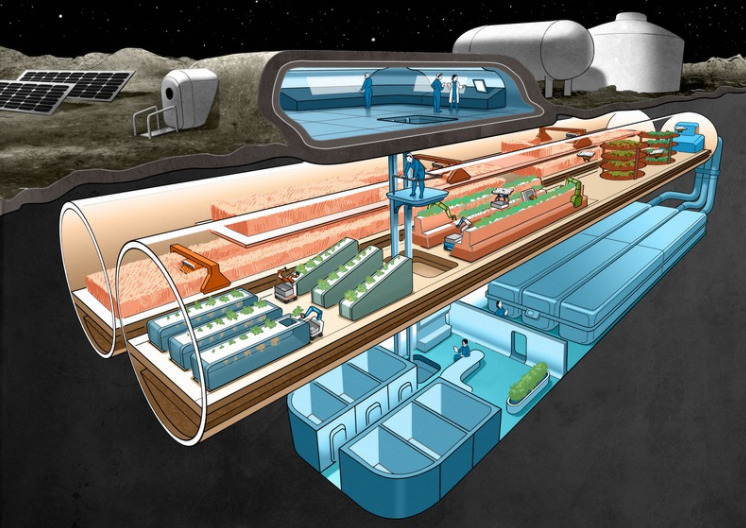The Japanese Govt is interested in moon-based food production projects for the future.
In line with the plans to start long-term stays in the moon’s orbit by the 2030s, the government-led initiative to encourage technology development for cultivating and supplying food for the planet Earth is set to kick off.

The government has envisioned making the most of organic waste from the moon’s surface as raw materials and producing highly nutritious food. The technology will assist with creating the Artemis U.S. missions to send astronauts to the moon, a task that Japan is also part of and will help improve Japan’s international standing in food resources.
Applications are open in The Ministry of Agriculture, Forestry, and Fisheries through the end of September from joint venture companies to contract the project out to. The period of trust is five years, which will end in the fiscal year 2025. In 2021, a maximum budget of 3 million yen (about $2.8 million) is anticipated to be allocated to the project.
At present, space food is processed on Earth and transported to space. A person who is associated with the space food project stated, “It’s estimated that per kilogram, it’s close to the 100-million-yen (some $900,000) for the transport of food to the moon, which is around 380,000 km away from Earth.”
If we spend many years at the lunar surface, this will cause huge costs for transportation, which will require food production on site. In the end, the aim is to build a food production system that is sustainable and secure nearly all of the nutrients needed by recycling waste, which includes organic waste, including in the air-free atmosphere of a moon base.
The focus is on highly productive and efficient technology and other innovations that will effectively cultivate food, including laboratory-grown meat derived from the cells from animals like cows and pigs and highly nutritious and high-yielding foods like rice, soybeans, and other crops in a manufacturing facility.
The Japan Aerospace Exploration Agency plans to build a base on the moon during the first half of the 2030s. They plan to have four people spending around 500 days there between 2035 and 2040. Thus, it’s important to address food security issues before that.
Also read about Japan Develops Wooden Satellites That Explode Upon Re-Entry
